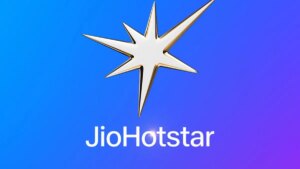
Comcast SpinCo chooses corporate name Versant
Comcast SpinCo Officially Named ‘Versant’: Inside the Media Giant’s New Corporate Identity
Table of Contents
Mark Lazarus, CEO of the newly named Versant, at the NBCUniversal Upfront presentation from Radio City Music Hall in New York City on Monday, May 13, 2024. (Photo: Charles Sykes/NBCUniversal/Getty Images)
Comcast SpinCo Officially Named Versant
Comcast’s long-anticipated spinoff of the majority of its NBCUniversal cable network portfolio has officially been named “Versant,” the company announced Tuesday. The name, pronounced like the root of the word “conversant,” brings to an end a months-long process to select a corporate identity for what had previously been referred to simply as “SpinCo.”
According to Chief Executive Officer Mark Lazarus, who spoke in an interview about the announcement, the name Versant was chosen to emphasize the company’s versatility and its familiarity with multiple subject areas—a nod to the diverse content portfolio it will manage across news, entertainment, and sports.
Key Points About Versant
- The name “Versant” was chosen to highlight versatility and expertise across multiple subjects
- Versant is designed to be a corporate holding name, not a consumer-facing brand
- The company will focus on its individual brand assets rather than the corporate identity
- The spinoff is on track to be completed before the end of 2025
- Assets under Versant generated approximately $7 billion in revenue last year
Lazarus emphasized that the new name isn’t meant to be consumer-facing, stating, “We’re going to focus on the individual brands that we have, not the corporate name. This is a holding company name. It’s going to be used for business-to-business purposes.” This approach positions Versant as a house of brands, with each individual asset interacting directly with consumers rather than the parent entity.
What Versant Will Own: Network and Digital Portfolio
Versant will house a significant portion of Comcast’s media empire, taking ownership of several major cable networks and digital properties. The portfolio includes prominent television networks such as USA Network, CNBC, MSNBC, Oxygen, E!, SYFY, and Golf Channel. This television lineup spans news, sports, and entertainment, giving Versant a diverse content offering across multiple genres.
Beyond traditional cable networks, Versant will also own several valuable digital assets including Fandango (the movie ticketing and streaming rental service), Rotten Tomatoes (the influential film and TV review aggregator), as well as golf-focused digital businesses GolfNow and GolfPass, and the youth sports platform SportsEngine.
| Cable Networks | Digital Assets | Remaining with Comcast/NBCU |
|---|---|---|
| CNBC | Fandango | NBC Broadcast Network |
| MSNBC | Rotten Tomatoes | Peacock |
| USA Network | GolfNow | Universal Studios |
| SYFY | GolfPass | Theme Parks |
| E! | SportsEngine | Bravo |
| Oxygen | ||
| Golf Channel |
The remainder of Comcast’s NBCUniversal portfolio, including the NBC broadcast network, Peacock streaming service, Universal Studios, the company’s theme parks, and the Bravo cable network, will continue to be owned by Comcast. This division creates two distinct media entities with different growth profiles and business strategies.
Versant’s Business Strategy and Growth Plans
The emphasis on versatility in Versant’s name selection reflects the company’s approach to navigating the rapidly changing media landscape. Lazarus will need to construct a compelling growth narrative for Wall Street investors once the company begins trading publicly, and that strategy appears to extend beyond traditional media operations.
According to Lazarus, approximately 20% of the company’s revenue already comes from digital sources, indicating that Versant is not solely dependent on traditional cable network distribution. Rather than launching its own streaming service to compete in an already crowded market, Versant will rely on its individual brands to develop their own digital strategies tailored to their specific audiences.
Versant’s Strategic Approach
The company appears to be focusing on several key strategies:
- Operating as a house of brands rather than promoting the corporate identity
- Expanding beyond pure media plays through strategic acquisitions
- Allowing brands to develop individualized digital strategies rather than a one-size-fits-all streaming service
- Building on existing success stories like GolfNow (a tee-time reservation system owned by Golf Channel)
- Likely returning money to shareholders through dividends
- Focusing on profitable businesses adjacent to core media assets
Lazarus cited Golf Channel’s acquisition of GolfNow, a tee-time reservation company, as an example of how the brands can expand beyond traditional linear TV and streaming to build profitable businesses. “Most people don’t know that GolfNow is even part of our company,” Lazarus said. “We are not going to be purely a collection of linear and digital media assets.”
Potential Acquisition Targets and Expansion Areas
While Versant’s initial asset portfolio is substantial, the company is already exploring potential acquisition opportunities to strengthen its position in the market. Lazarus indicated that some of these acquisitions may step outside pure media plays, focusing instead on businesses that complement and extend the company’s existing brands.
For CNBC specifically, Lazarus mentioned the possibility of acquiring personal finance or fintech platforms that align with the network’s focus on business and financial news. Similarly, for MSNBC, he revealed that preliminary conversations have already taken place regarding the potential acquisition of podcasts that cater to Democratic audiences. However, he clarified that such content would operate as a separate business unit rather than being integrated into MSNBC’s on-air programming, with the cable network serving primarily as a marketing funnel.
What Versant Is NOT Likely to Acquire
Lazarus also outlined acquisition strategies Versant will likely avoid:
- Additional cable networks without associated growth businesses
- Assets that would require accumulating more debt for low-growth properties
- TV station groups (particularly given the current regulatory environment)
- Companies that don’t complement existing brand portfolios
- Standalone streaming services that would compete with existing platforms
The acquisition strategy appears selective and focused on enhancing existing strengths rather than simply accumulating more traditional media assets. Lazarus expressed little interest in taking on additional debt associated with low-growth properties, though he did leave the door open for cable network acquisitions if they came with associated businesses offering better growth prospects.
Behind the Naming Process: How Versant Was Selected
The process of selecting the Versant name was extensive and methodical, involving marketing employees from each of SpinCo’s brands. The naming initiative began in late December with a series of meetings aimed at identifying potential corporate identities. Within a few weeks, the team had generated more than 1,000 potential names for consideration.
Initially, employees were directed to focus on names that drew upon connections to New York, cable television, or made passing references to 30 Rockefeller Center, NBCUniversal’s iconic headquarters. The extensive list of names was then carefully filtered through legal and trademark reviews to eliminate options with potential infringement issues or other problems, such as negative connotations in various languages.
The Versant Naming Process
- Started in late December with marketing teams from all SpinCo brands
- Generated over 1,000 potential names within a few weeks
- Initial focus on New York, cable TV, and 30 Rock references
- Three marketing agencies hired to help generate and evaluate names
- Legal review narrowed the list to just 43 viable options
- Final shortlist contained about a dozen names
- Lazarus and his marketing team made the final selection in recent weeks
To assist with the naming process, Comcast hired three marketing agencies to help generate additional name options and to help cull the extensive list. After thorough legal review, only 43 of the initial names cleared the legal hurdles—a testament to the challenges of finding available trademarks in today’s crowded corporate landscape.
From the 43 legally viable options, the team further narrowed the list to approximately a dozen finalists, which were then presented to the decision-making committee. Lazarus and his marketing team made the final selection of “Versant” within the past few weeks.
The word “versant” has another meaning beyond its connection to versatility—it can refer to “a region of land sloping in one general direction.” With characteristic optimism, Lazarus joked that an uphill slope reminded him of “a rising stock price,” hinting at the company’s aspirations for growth once it begins trading publicly.
Future Outlook and Timeline for the Spinoff
According to Lazarus, Versant remains on track to be spun out from Comcast before the end of 2025, maintaining the timeline previously announced. The assets that will comprise Versant generated approximately $7 billion in revenue last year, making it a substantial media entity even as a standalone company.
As reported by CNBC in November, Versant is likely to return money to shareholders via dividends once it begins operating as an independent company. This strategy aligns with the company’s positioning as a mix of established media brands with reliable cash flow combined with growth-oriented digital businesses.
Versant’s Path Forward
Key elements of Versant’s future strategy appear to include:
- Completion of the spinoff from Comcast by end of 2025
- Focus on growing digital revenue beyond the current 20% share
- Strategic acquisitions that extend beyond traditional media
- Likely dividend payments to shareholders
- Brand-specific digital strategies rather than a unified streaming approach
- Maintaining the strength of established cable brands while developing new business lines
The creation of Versant represents a significant restructuring in the media landscape, as Comcast separates its traditional cable network business from its other entertainment assets. As the media industry continues to evolve rapidly in response to changing consumer behaviors and technologies, Versant’s versatile approach—reflected in its very name—may provide it with the flexibility needed to navigate these challenges.
With a diverse portfolio spanning news, entertainment, sports, and digital services, Versant enters the market as a substantial player with established brands and the potential to evolve beyond traditional media models. As 2025 approaches, industry observers will be watching closely to see how this new entity positions itself in the competitive media landscape.
Disclosure: Comcast is currently the parent company of NBCUniversal, which owns CNBC. Upon completion of the spinoff, Versant would become the new parent company of CNBC.






